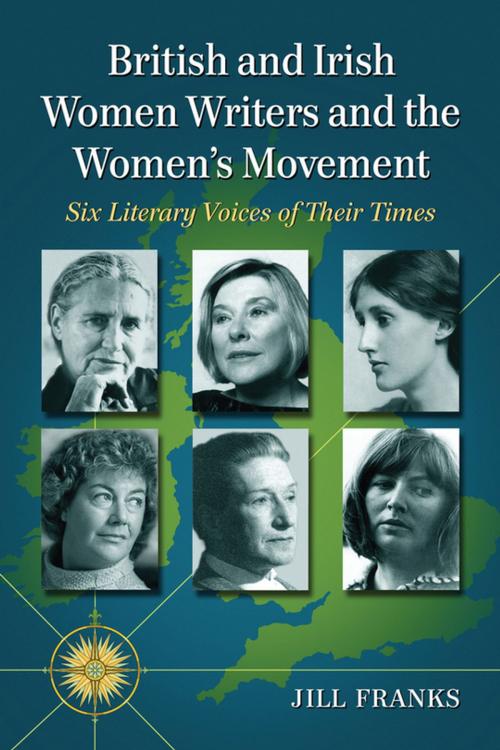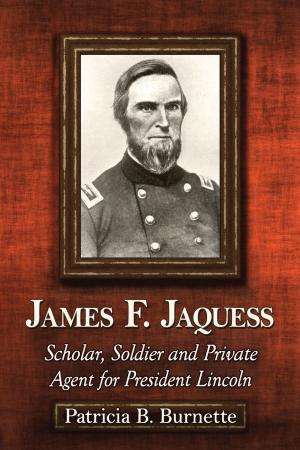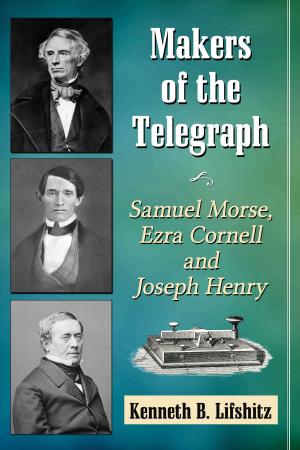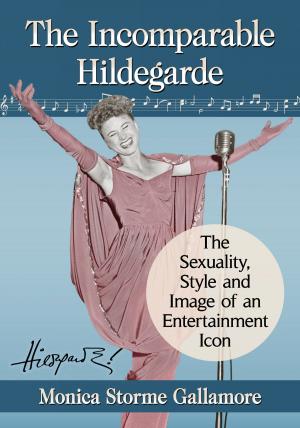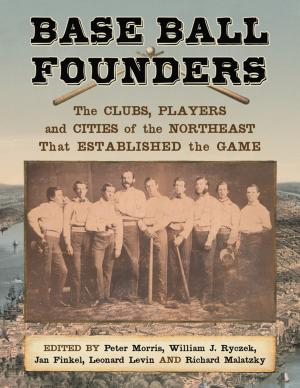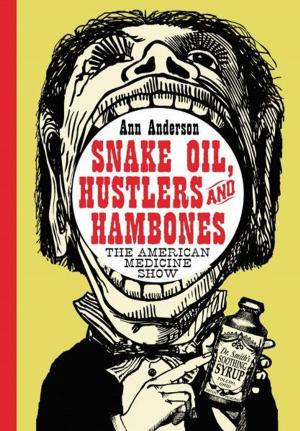British and Irish Women Writers and the Women's Movement
Six Literary Voices of Their Times
Nonfiction, Social & Cultural Studies, Social Science, Gender Studies, Women&, Fiction & Literature, Literary Theory & Criticism| Author: | Jill Franks | ISBN: | 9781476602684 |
| Publisher: | McFarland & Company, Inc., Publishers | Publication: | February 7, 2013 |
| Imprint: | Language: | English |
| Author: | Jill Franks |
| ISBN: | 9781476602684 |
| Publisher: | McFarland & Company, Inc., Publishers |
| Publication: | February 7, 2013 |
| Imprint: | |
| Language: | English |
This study pairs selected Irish and British women novelists of three periods, relating their voices to the women’s movements in their respective nations. In the first wave, nationalist and militant ideologies competed with the suffrage fight in Ireland. Elizabeth Bowen’s The Last September illustrates the melancholy of gender performance and confusion of ethnic identity in the dying Anglo-Irish Ascendancy class. In England, suffrage ideologies clashed with socialism and patriotism. Virginia Woolf’s Mrs. Dalloway contains a political unconscious that links its characters across class and gender. In the second wave, heterosexual romantic relationships come under scrutiny. Edna O’Brien’s Country Girls trilogy reveals ways in which Irish Catholic ideologies abject femaleness; her characters internalize this abjection to the point of self-destruction. Doris Lessing’s The Golden Notebook pits the protagonist’s aspirations to write novels against the Communist Party’s prohibitions on bourgeois values. In the third wave, Irish writers express the frustrations of their cultural identity. Nuala O’Faolain’s My Dream of You takes her protagonist back to Ireland to heal her psychic wounds. In England, Thatcherism had created a materialistic culture that eroded many feminists’ socialist values. Fay Weldon’s Big Woman satirizes the demise of second-wave idealism, asking where feminism can go from here.
This study pairs selected Irish and British women novelists of three periods, relating their voices to the women’s movements in their respective nations. In the first wave, nationalist and militant ideologies competed with the suffrage fight in Ireland. Elizabeth Bowen’s The Last September illustrates the melancholy of gender performance and confusion of ethnic identity in the dying Anglo-Irish Ascendancy class. In England, suffrage ideologies clashed with socialism and patriotism. Virginia Woolf’s Mrs. Dalloway contains a political unconscious that links its characters across class and gender. In the second wave, heterosexual romantic relationships come under scrutiny. Edna O’Brien’s Country Girls trilogy reveals ways in which Irish Catholic ideologies abject femaleness; her characters internalize this abjection to the point of self-destruction. Doris Lessing’s The Golden Notebook pits the protagonist’s aspirations to write novels against the Communist Party’s prohibitions on bourgeois values. In the third wave, Irish writers express the frustrations of their cultural identity. Nuala O’Faolain’s My Dream of You takes her protagonist back to Ireland to heal her psychic wounds. In England, Thatcherism had created a materialistic culture that eroded many feminists’ socialist values. Fay Weldon’s Big Woman satirizes the demise of second-wave idealism, asking where feminism can go from here.
